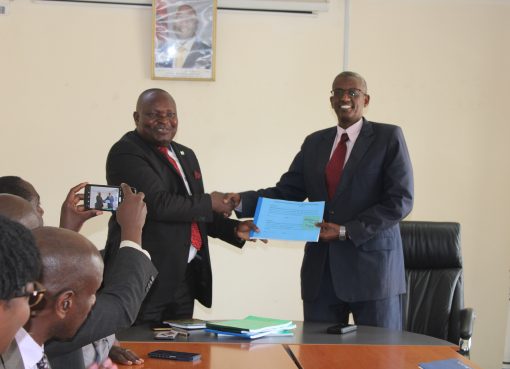Kenya is targeting to grow its export earnings by increasing the volume of horticulture and other agricultural products exported to Israel through the recently launched direct flights between the two countries.
Agriculture Cabinet Secretary (CS) Mithika Linturi said that within the agricultural sector, horticultural crops, among them fruits and vegetables, have been identified as crucial commodities that would immensely contribute to grow export earnings.
Speaking on Monday during the launch of the inaugural direct cargo flight from Nairobi to Tel Aviv-Israel at the Jomo Kenyatta International Airport (JKIA), Linturi said that the direct flight was formally announced by President William Ruto at the Israel Investor Roundtable Forum in Tel Aviv on the 10th May 2023.
“I wish to take this opportunity to thank the Management of Astral Aviation for taking this bold step in having a direct cargo flight from Nairobi to Tel Aviv. I have learnt that the cargos that I am launching today have horticultural crops with the highest portion being pineapples,” said the CS.
He explained that the agricultural sector is the mainstay of the Kenyan economy with a great potential for growth and transformation and is critical to growing the economy, reducing the cost of food, alleviating poverty and delivering food and nutrition security as well as provision of raw materials for manufacturing.
“The Government of Kenya has identified five key priorities which have been defined for the Bottom-up Economic Transformation Agenda (BETA) that would enhance growth in new jobs created and growth in incomes. One of the priorities is agriculture, with three critical areas being increasing food security; reducing imports disparity and grow export earnings,” said the CS.
He said that his Ministry, as a lead agency, remains committed to achieving sustainable agricultural growth and transforming agriculture from subsistence to a commercially and globally competitive industry.
“This is clearly stipulated in the Agricultural Sector Transformation and Growth Strategy (ASTGS) coupled with the National Agriculture Investment Plan (NAIP). The strategy was formulated by the National Government in collaboration with County Governments and other stakeholders to guide the growth of the sector in line with constitutional and legal frameworks, policies, the devolved system of governance as well as regional and international commitments,” said the CS.
He explained that within the agriculture sector, the horticulture subsector is the fastest growing industry and continues to register an annual growth rate of approximately 15 percent according to the Kenya National Bureau of Statistics (KNBS report, 2020).
Linturi said that the subsector is a key income earner, and contributes to foreign earnings to the tune of Sh158 billion annually.
“The major crop category contributing to this is flowers, vegetables and fruits at Sh10.8 billion; Sh28.460 and Sh18.3 billion respectively,” said the CS.
Linturi said that the total volume exported was 313.6 thousand metric tonnes. The highest volume was from flowers at 146 thousand metric tonnes, followed by vegetables at 105.1 thousand metric tonnes and lastly fruits at 62.6 thousand metric tonnes.
“Stakeholders, actors and growers can also take advantage of high demands of medicinal and aromatic plants both in the Country and for export, to increase production,” he said.
The CS added that currently, a coordination mechanism for the horticultural industry is in place, drawing members from public, private and non-state actors. It is expected that policy changes while reviewing the horticulture policy will legalize the coordination mechanism within the sub sector.
Linturi highlighted that the development and review of the horticultural policy instruments supporting the sub sector, including the National phytosanitary policy and review of National Horticulture Regulation 2020 are at an advanced stage.
“Others interventions include creation of pest free areas by the Kenya Plant Health Inspectorate Service (KEPHIS) in conjunction with Counties and other stakeholders that has led to opening of export markets of some crops,” said Linturi.
He said that the government has developed and signed a significant number of bilateral agreements to facilitate trade adding that in other instances, the government has put up mechanisms as well as creating an enabling environment to support the private sector to undertake what it is best at.
“Today’s event is a culmination of such support when we are witnessing the launch of the cargo flights which will result in the economic ties between Kenya and Israel. This endeavor will facilitate the efficient transportation of goods and enhance trade opportunities between Kenya and Israel, benefiting our respective economies and fostering mutually beneficial partnerships,” said Linturi.
By Joseph Ng’ang’a





